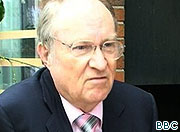Several of the 115 Brits who have so far committed suicide at the Dignitas facility in Switzerland were suffering from “treatable” conditions, it has been revealed.
A leading doctor has said he is “horrified” at the newly-released details of the British deaths which have taken place at the clinic since it was founded.
Many of the individuals suffered from terminal conditions such as cancer.
However, two had Crohn’s disease, an inflammatory bowel disease, two were tetraplegics, and one had rheumatoid arthritis. A further three had kidney disease, which can be usually treated by dialysis or a transplant.
Dr Tony Calland, Chairman of the British Medical Association’s ethics committee, described these conditions as “eminently treatable”, and said the list “raises considerable concern”.
“To go off and commit suicide simply on the basis of these conditions would be premature and unreasonable,” he said.
It was recently reported that Dignitas was facing investigation over the death of a physically healthy man who suffered from depression and was helped to die at the facility.
The organisation has changed location several times, and a nurse who used to work there has accused founder Ludwig Minelli of profiting from patients’ deaths.
In the coming weeks Peers are expected to debate proposals to weaken the existing law against assisted suicide to prevent the prosecution of those who help friends and relatives travel to Dignitas.
The assisted suicide lobby group the Voluntary Euthanasia Society, now re-branded as Dignity in Dying, has claimed that the new information points towards the need for such a change in order to “safeguard the process”.
Professor Steve Field, Chairman of the Royal College of General Practitioners, responded to the newly-released information: “While I appreciate that some patients with conditions like these experience great suffering and misery, I’m concerned because I know that many of the conditions outlined are conditions patients live with and can live with for many years and continue to have productive and meaningful lives.”



